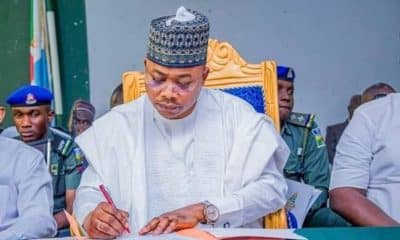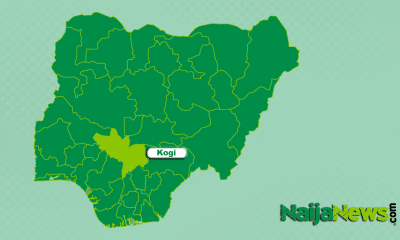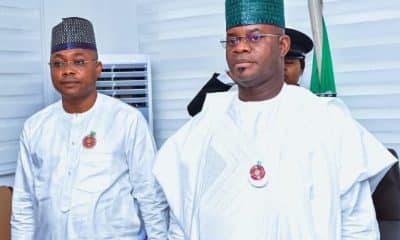Politics
Yahaya Bello Sent His Henchmen To Kill Me – Senator-elect, Natasha Akpoti

The Senator-Elect of Kogi Central, Natasha Akpoti-Uduaghan, has claimed that the governor of Kogi State, Yahaya Bello tried to harm her during the senatorial election that took place in March.
She claimed that the governor’s henchmen shot at her vehicle.
Akpoti-Uduaghan made the allegation during an appearance on Tuesday’s edition of Channels Television’s Politics Today.
“I heard guns; I had his henchmen shoot at my vehicle; I have video evidence of that.
“It was the immediate past; they were adorned in APC shirts and one of them was Amoka; he was actually the returning officer for Okehi local government. He led the group of ten men to shoot at me, I have the video captured in that,” she said.
Speaking further, the senator-elect expressed concern regarding the governor’s recent statement where he acknowledged her victory as the duly elected candidate for Kogi Central.
She criticized the governor’s remarks, highlighting the inconsistency of endangering people’s lives and labeling it as the ‘beauty of democracy.’
“He said this is the beauty of politics; this is not the beauty of politics. You don’t endanger people, you don’t set out to kill people, you don’t destroy properties, and you don’t frustrate the electoral process just because you want your candidate to win and call it ‘the beauty of democracy’,” she said.
Akpoti-Uduaghan also alleged that the governor deliberately disrupted essential routes within the state to impede the seamless progress of the election.
“Apart from that, the governor actually thwarts roads. The governor, a day before the election, cut five – he dug gullies, cutting five roads. That was just to prevent the election from taking place, probably endangering my life.
“It was a day to the election but thank God we had the payloaders and I went all night, we had to cover the gullies so that the election could take place,” she added.
However, the politician maintained that despite the threats she had to demonstrate her resilience to ensure that she did not portray an image of vulnerability for women involved in or aspiring to engage in political leadership.
“A lot went on that we couldn’t even put before the media because I didn’t want to seem as if I was every day, crying for help. I needed to show strength; I didn’t want to discourage other women like me from entering politics and thinking, ‘Oh, it’s too violent, it’s too volatile’,” she maintained.












